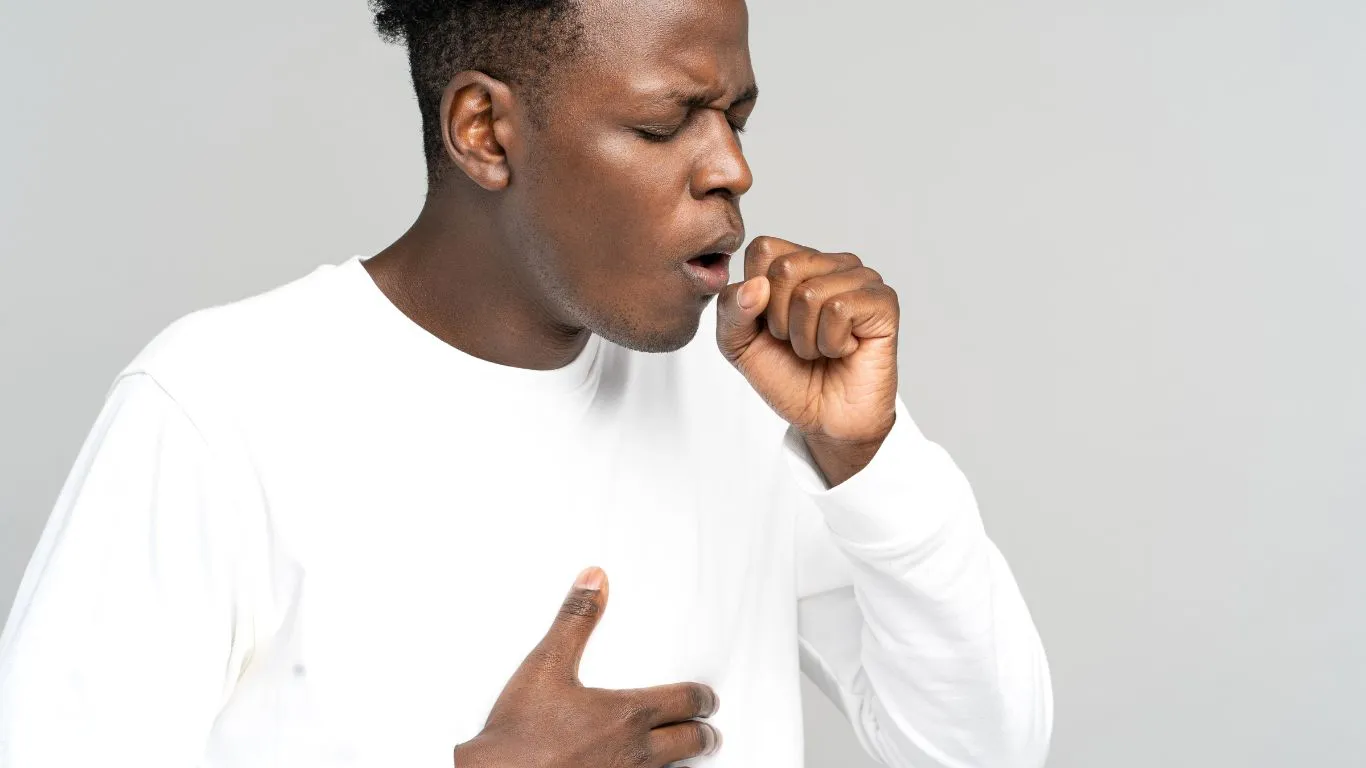Tingling in Chest from Asthma? Here’s Why You Shouldn’t Ignore It
If you’ve ever asked yourself, “Can asthma cause tingling in chest?”, you’re definitely not alone. It’s a question I’ve been asked plenty of times in the clinic. As a pulmonary nurse practitioner, I’ve sat across from patients who were experiencing this weird, almost buzzing sensation and didn’t know what to make of it. Let’s talk about it because it’s more common than people realize—and honestly, it can be a little unnerving if you’re not sure what’s going on.
What Does Tingling in the Chest Feel Like?

Tingling in the chest can feel like pins and needles, a slight burning, or even a crawling sensation under the skin. Some of my patients describe it as a “fizzy” or “sparkling” feeling—like soda bubbles under the skin. Not exactly painful, but definitely strange. And when it happens alongside asthma symptoms, like shortness of breath or chest tightness, it can be confusing.
Now, let’s clear this up right away: tingling isn’t one of the textbook symptoms of asthma—but that doesn’t mean it’s unrelated. In fact, there are a few key ways asthma might trigger this odd sensation.
Can Asthma Cause Tingling in Chest? Here’s the Real Talk

In short? Yes, asthma can contribute to tingling in the chest—but it’s not always a direct cause. Let me explain.
1. Hyperventilation and Nerve Response
When an asthma attack flares up, your breathing often speeds up—sometimes without you even realizing it. This over-breathing (aka hyperventilation) can mess with the balance of oxygen and carbon dioxide in your bloodstream. When CO2 levels drop too low, nerves start firing off in strange ways, leading to sensations like tingling or numbness.
I’ve had patients who came into the ER panicking because they thought they were having a heart attack. But after checking them out, their lungs were tight from asthma and they were hyperventilating. The tingling? A side effect of the body trying to compensate.
2. Anxiety Layered on Top of Asthma
This is a big one. Asthma and anxiety go hand-in-hand more often than people think. When you can’t breathe properly, it’s scary. That fear alone can trigger a panic response, which can include chest tingling, rapid heartbeat, sweating—you name it.
Personally, I’ve walked patients through breathing exercises to calm their nervous systems during an asthma flare-up, and it’s incredible how many of them report that the tingling fades as they calm down. It’s the body’s way of saying, “Something’s not right,” but not always in a harmful way.
When Should You Be Concerned About Chest Tingling?

Okay, so here’s where we get serious. While asthma can be a reason for chest tingling, it’s not the only reason—and definitely not the most dangerous one. You always want to rule out other issues, like:
- Heart problems – Tingling can show up during cardiac events.
- Pinched nerves – Especially in the neck or upper spine.
- Vitamin deficiencies – Low B12, for instance, can cause nerve issues.
- Acid reflux – Sometimes, this can mimic both chest tightness and tingling.
If that tingling is new, persistent, or paired with other symptoms like pain radiating to the arm, jaw pain, or dizziness—don’t wait. Get checked out immediately. Better to be safe and find out it’s just asthma than miss something more serious.
So…What Should You Do If You Feel Tingling in Your Chest?
If you’re someone living with asthma and you’ve noticed this tingling, here’s a quick checklist you can run through:
- Check your breathing—are you wheezing, short of breath, or coughing more than usual?
- Notice your stress level—could you be anxious or on the edge of a panic response?
- Have you recently used your rescue inhaler? Relief from symptoms after use is a big clue it’s asthma-related.
- Do a quick posture check—poor posture can compress nerves, especially when we’re tense.
If you’re unsure or the sensation doesn’t improve, don’t hesitate to get medical help. I always tell my patients, “Listen to your body—it’s smarter than we give it credit for.”
Other Surprising Symptoms That Can Tag Along with Asthma

Here’s something that surprises a lot of folks—even people who’ve been managing asthma for years: it doesn’t always show up with just wheezing and coughing. Over time, I’ve seen a pretty wide range of symptoms that don’t scream “asthma” at first glance. The tingling chest sensation is just one piece of that puzzle.
Let me tell you about one of my patients—a middle-aged teacher who came in complaining of light-headedness, a fluttery sensation in her chest, and occasional tingling along with fatigue. Initially, she thought it was perimenopause or stress. Turned out, her asthma wasn’t well-controlled, and these were all subtle warning signs. Once we adjusted her treatment plan, those odd symptoms faded away like magic.
Some lesser-known asthma symptoms I’ve seen:
- Fatigue – Chronic low oxygen levels wear the body down.
- Frequent yawning – Your body trying to get more air.
- Neck and shoulder tension – Compensation for struggling lungs.
- Sleep disruption – Especially from nighttime coughing or chest tightness.
So if you’re experiencing odd, recurring sensations like chest tingling, and you already have asthma or even suspect it—you’re not overreacting. These things are your body’s red flags. Tune in.
How to Tell If It’s Asthma or Something Else

Now, I don’t want to make you a hypochondriac here—but I’m a big believer in being informed. Chest tingling can come from different causes, so it helps to get a sense of how it behaves. Here’s a little comparison I walk my patients through:
| Asthma-Related Tingling | Other Possible Causes |
|---|---|
| Often comes with shortness of breath or tight chest | May occur without any breathing issues |
| May improve after using an inhaler | Usually not affected by asthma meds |
| Triggered by exercise, allergens, cold air | Can come from anxiety, nerve issues, heartburn, or cardiac causes |
| Can be subtle and chronic if asthma is uncontrolled | May appear suddenly or feel sharp if nerve-related |
Disclaimer from the nurse in me: Always get chest symptoms evaluated if you’re unsure. Asthma doesn’t rule out other conditions.
What Can You Do to Prevent Tingling from Returning?

So let’s say you’ve had chest tingling during or after asthma symptoms—and it really freaked you out (understandably!). The big question now is, how can you avoid this in the future?
Here’s what I usually recommend, both as a clinician and someone who has seen this play out many times:
1. Keep Your Asthma Under Control
I know, easier said than done. But consistent use of your maintenance inhalers, tracking symptoms, and avoiding triggers makes a world of difference. Patients who don’t skip their controller meds tend to avoid weird side effects like tingling altogether.
2. Master Breathing Techniques
This one’s underrated. Diaphragmatic breathing and pursed-lip breathing techniques can help stop hyperventilation in its tracks. I actually walk patients through these exercises in the office. They can make a noticeable difference in how your chest and nerves react during flares.
3. Watch the Anxiety Loop
If you notice tingling coming on when you’re stressed or panicked—try journaling or tracking those episodes. There may be a mental health component that’s worth addressing. I’ve referred quite a few asthma patients to therapists for anxiety support, and the physical symptoms often calm down once the mind does.
4. Avoid Common Trigger Setups
- Cold air without a scarf or mask
- Dusty, dry environments
- Forgetting to pre-medicate before exercise
- High-pollen days without precautions
Managing asthma well means fewer flare-ups, and that means less strain on your nerves and chest muscles—which ultimately helps reduce tingling episodes, too.
Don’t Ignore What Your Body Is Trying to Tell You
Look, I’ve been doing this long enough to tell you—your body always sends signals. It’s just that sometimes, those signals are subtle. A little chest tingling might not seem like a big deal, but when it comes along with asthma symptoms, it’s worth paying attention to.
If nothing else, it’s your body saying, “Hey, we’re working harder than usual down here.” And while asthma doesn’t always behave predictably, it sure does leave clues when something’s off.
When It’s Time to Call in the Pros

Alright—so maybe you’ve been managing your asthma pretty well, but that pesky chest tingling keeps showing up. Or maybe it’s new, and it’s making you second-guess whether it’s even asthma-related. Here’s the deal: if something feels off and it’s not going away, don’t brush it under the rug.
In my clinic days, I’d often see patients who waited weeks—or even months—before getting something like this checked. I get it, life gets busy, and maybe you think it’s just stress or sleep. But persistent or worsening tingling, especially in the chest area, deserves a professional look.
What a Pulmonary Specialist Might Do
- Run a spirometry test to evaluate your lung function
- Order imaging (like a chest X-ray or CT scan) if symptoms aren’t lining up
- Look at possible nerve-related causes if asthma treatment isn’t helping
- Refer you for blood work to check for things like vitamin deficiencies or inflammatory markers
Trust me, this kind of thorough evaluation often brings patients peace of mind. Best case? It’s just your asthma needing a tune-up. Worst case? You catch something early that might’ve gone unnoticed. Either way—you’re taking control of your health, and that’s a win.
Creating a Personalized Asthma Action Plan (That Actually Works)

I’ve said this more times than I can count: Every person with asthma should have a written action plan. Not a mental checklist, not a vague idea—an actual plan. It should include when to take meds, how to adjust during flare-ups, and what to do when symptoms like tingling pop up out of nowhere.
Here’s what I usually include when I help patients build theirs:
- Your baseline – What’s your normal? Know your peak flow numbers, your triggers, your “usual” symptoms.
- Yellow zone actions – What to do when you start noticing warning signs like tightness, tingling, or increased cough. Usually includes extra use of rescue inhaler, rest, and maybe a temporary med adjustment.
- Red zone steps – When to go to urgent care, call your provider, or dial 911. Tingling paired with shortness of breath and chest pain? That’s a red flag, not a “wait and see.”
If you haven’t made one yet—do it today. There are printable templates on sites like aafa.org and lung.org. Just make sure to review it with your provider so it actually fits your specific case.
Let’s Wrap This Up: What I Tell My Patients
So… can asthma cause tingling in the chest? Yes, in many cases it can—directly or indirectly. It might be from breathing pattern changes, anxiety tied to asthma flares, or even just the body reacting to chronic inflammation. But it’s not something you should ever ignore or self-diagnose away.
When my patients come in worried about this symptom, I try to give them room to feel heard first. No medical jargon. Just plain language and listening. Then we explore all the possible causes and come up with a solid plan. Because honestly? Living with asthma doesn’t have to feel like walking a tightrope all the time.
If you’ve read this far—thank you. You’re clearly taking charge of your health, or maybe looking out for someone you care about. Either way, that matters. And if your chest is tingling and your gut says, “Hmm, something’s not right,”—don’t ignore that whisper. Get it checked out. Breathe easy, friend.
References
- Asthma and Allergy Foundation of America
- American Lung Association
- Centers for Disease Control and Prevention
- National Heart, Lung, and Blood Institute
Disclaimer
This article is for informational purposes only and does not constitute medical advice. Always consult with a qualified healthcare provider for diagnosis and personalized treatment. If you are experiencing chest pain, tingling with dizziness, or difficulty breathing, seek emergency medical care immediately.

Bianca Nala is a compassionate Nurse Practitioner with a strong background in primary and respiratory care. As a health writer for Healthusias.com, she combines her clinical expertise with a talent for clear, relatable storytelling to help readers better understand their health. Bianca focuses on topics like asthma, COPD, chronic cough, and overall lung health, aiming to simplify complex medical topics without losing accuracy. Whether she’s treating patients or writing articles, Bianca is driven by a single goal: making quality healthcare knowledge accessible to everyone.







